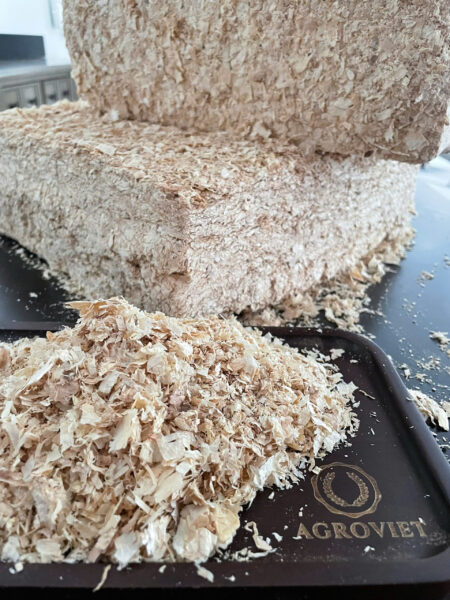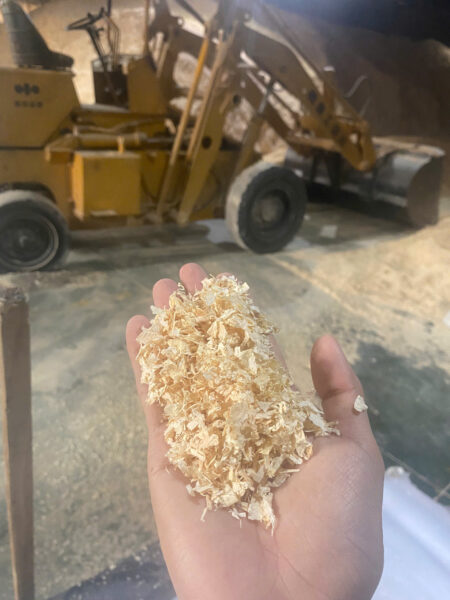 Introduction: The Role of Pine Wood Shavings in Organic Farming and Sustainable Agriculture
Introduction: The Role of Pine Wood Shavings in Organic Farming and Sustainable Agriculture
In organic farming and sustainable agriculture, maintaining soil health, reducing waste, and supporting eco-friendly practices are paramount. Pine wood shavings have emerged as a valuable resource in achieving these goals, offering a natural, renewable, and biodegradable solution that benefits both farmers and the environment. This article explores how pine wood shavings play a pivotal role in organic farming and sustainable agriculture, contributing to soil enrichment, water conservation, and waste reduction.
1. Enhancing Soil Health with Pine Wood Shavings
One of the most critical aspects of organic farming and sustainable agriculture is soil health. Pine wood shavings contribute to this in multiple ways:
A. Organic Matter Addition
When used as a soil amendment or mulch, pine wood shavings break down over time, adding organic matter to the soil. This increases the soil’s fertility, structure, and ability to retain moisture, which is crucial for healthy plant growth.
B. Improved Soil Aeration
The structure of pine wood shavings helps loosen compacted soils, improving aeration and allowing plant roots to access nutrients and water more effectively. This is especially beneficial in sustainable farming systems where soil compaction is a concern.
C. Balanced pH Levels
Pine wood shavings have a neutral to slightly acidic pH, which can help balance soil pH levels in areas where the soil is too alkaline. This balance promotes better nutrient availability for plants, contributing to sustainable crop production.
2. Pine Wood Shavings as Mulch in Organic Farming
Mulching is a vital practice in organic farming, helping retain moisture, suppress weeds, and regulate soil temperature. Pine wood shavings serve as an excellent mulching material for several reasons:
A. Moisture Retention
By covering the soil, pine wood shavings reduce evaporation, helping retain moisture in the root zone. This reduces the need for frequent watering, conserving water, and supporting sustainable farming practices, especially in arid or drought-prone regions.
B. Weed Suppression
Pine wood shavings create a physical barrier that prevents weed seeds from germinating and growing. This natural weed suppression reduces the need for chemical herbicides, aligning with organic farming principles and reducing environmental impact.
C. Temperature Regulation
Mulching with pine wood shavings helps regulate soil temperatures, keeping the soil cooler in hot weather and warmer during cooler months. This stability supports plant growth and improves crop yields in organic farming systems.
3. Reducing Waste and Promoting Sustainability with Pine Wood Shavings
A core principle of sustainable agriculture is minimizing waste and utilizing renewable resources. Pine wood shavings fit well within this framework:
A. Recycling Wood Byproducts
Pine wood shavings are typically a byproduct of the timber and woodworking industries. By repurposing these shavings as animal bedding, mulch, or soil amendments, farmers help reduce waste and contribute to a circular economy in which materials are reused rather than discarded.
B. Biodegradability
As a natural material, pine wood shavings are fully biodegradable. When used in farming, they break down over time, enriching the soil rather than contributing to landfill waste. This aligns with sustainable agriculture’s emphasis on environmentally friendly, renewable inputs.
C. Supporting Zero-Waste Farming
Farmers practicing zero-waste agriculture can incorporate pine wood shavings into their systems, using them as bedding for livestock, then composting the soiled shavings to create nutrient-rich compost. This closed-loop system supports sustainability and reduces reliance on external inputs.
4. Pine Wood Shavings in Composting: A Key to Sustainable Agriculture
Composting is an essential practice in sustainable and organic farming, and pine wood shavings play a significant role in creating high-quality compost:
A. Carbon Source
In composting, a balance between carbon (browns) and nitrogen (greens) is necessary for effective decomposition. Pine wood shavings provide a valuable source of carbon, helping balance compost piles and promoting the breakdown of organic matter.
B. Absorption of Excess Moisture
When added to compost, pine wood shavings can absorb excess moisture, preventing compost from becoming too wet and anaerobic. This improves the composting process and leads to better-quality compost for use in organic farming.
C. Enhancing Compost Quality
Composting pine wood shavings alongside animal manure or other nitrogen-rich materials results in a nutrient-rich compost that can be applied to fields or gardens. This compost improves soil fertility, supports sustainable crop production, and reduces the need for synthetic fertilizers.
5. Pine Wood Shavings and Sustainable Livestock Management
In sustainable agriculture, the health and well-being of livestock are equally important. Pine wood shavings contribute to sustainable livestock management in several ways:
A. Comfortable Bedding for Animals
Pine wood shavings are often used as bedding for livestock, providing a comfortable, dry environment that reduces stress and promotes animal welfare. Comfortable animals are more productive and healthier, which is crucial for sustainable farming.
B. Reducing Ammonia and Odors
Pine wood shavings have natural odor-control properties, helping reduce ammonia levels in livestock stalls and barns. This improves air quality for both animals and farmworkers, supporting sustainable farming practices that prioritize health and safety.
C. Recyclable as Compost or Fertilizer
Once soiled, pine wood shavings can be composted along with manure to create a rich, nutrient-dense fertilizer. This closed-loop system supports sustainable farming by recycling waste products and reducing the need for external inputs.
6. Best Practices for Using Pine Wood Shavings in Organic and Sustainable Farming
To maximize the benefits of pine wood shavings in organic farming and sustainable agriculture, it’s important to follow best practices:
A. Ensure Proper Storage
Store pine wood shavings in a dry, covered area to prevent moisture absorption before use. Proper storage ensures the shavings maintain their absorbent properties and effectiveness.
B. Use as Mulch and Compost Material
Apply pine wood shavings as mulch around crops to suppress weeds and retain moisture. After use as animal bedding, compost the shavings to create a valuable soil amendment.
C. Balance Carbon-to-Nitrogen Ratios in Compost
When adding pine wood shavings to compost, ensure a proper balance of carbon (shavings) and nitrogen (manure or food scraps). This balance supports effective decomposition and results in high-quality compost.
Conclusion: The Role of Pine Wood Shavings in Supporting Sustainable Agriculture
Pine wood shavings play a critical role in organic farming and sustainable agriculture by enhancing soil health, conserving water, reducing waste, and supporting eco-friendly livestock management. By incorporating pine wood shavings into their farming practices, farmers can create more sustainable, efficient, and productive systems that benefit both the environment and their crops or livestock. From mulching and composting to livestock bedding, pine wood shavings offer a versatile, natural solution that aligns with the principles of sustainability and organic farming.


